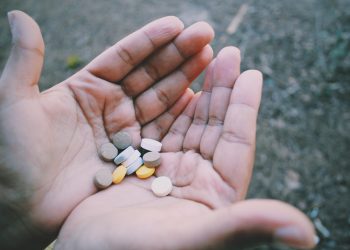If you are struggling with herpes symptoms this article can help you to understand your options. There is no need to lose hope. No matter how long or how frequently you experience outbreaks this information can help you.
There are many safe and effective ways to treat the herpes virus, and although sometimes persistence and positive changes may be required, each and every person has the ability to be outbreak free.
Contents
Practical steps to be free of herpes outbreaks:
Some people prefer not to take any treatment at all (or just make simple diet and lifestyle changes) particularly if they don’t experience outbreaks very often, are not in a relationship or only have very minor symptoms.
1) Use an effective remedy when you experience symptoms
There are many different herpes and cold sore remedies sold on the internet, many claiming absolute and wonderful results. To sort the facts from the fiction the HC Support Team have made a list of herpes treatments that are known to be credible and which work consistently and effectively for many people.
List of Herpes Treatments:
The conventionally prescribed treatments are:
2) Have a close look at factors in your life that could be affecting your health
Taking good care of yourself is a big step to reducing outbreaks. If you have tried numerous therapies and still experience regular outbreaks you may need to assess all areas of your life to determine where your health might be affected.
For example, have you been under an unusual amount of stress or anxiety? Are you getting adequate sleep? Have you been affected by another health issue, such as flu, painful or irregular menstruation, menopause, or another illness? Are you on a medication that may have unforeseen side-effects?
All of these things can have an effect on herpes, and if you do have other health issues you should address them.
Over the years we have noticed that the following medications may potentially aggravate herpes symptoms:
- Steroid based medications, including cortisone and hydrocortisone
- Depo provera birth control shot
- Fluticasone nasal spray
- Nasonex nasal spray
- Flu shot or vaccinations, in rare cases
- Any medication which could compromise or weaken the immune system
- Protein shakes (not technically a medication, but worth mentioning)
Do not underestimate the effect of stress on the body. Stress can be a big contributor to outbreaks and anything that may relieve this pressure can be helpful, such as deep breathing, taking a vitamin b group supplement, herbal teas, reducing caffeine, meditation and yoga.
Sometimes stress and late nights are unavoidable. If you know something is affecting your health and you are having trouble putting a stop to it, one approach that may help is to take a small daily dose of Korean Ginseng (Panax ginseng) or a B vitamin complex.
Ginseng is a powerful herb which can help to rejuvenate the body from stress and sleep deprivation. It can also help your body recover from a previous or recent illness, as well as counteract the effects of toxins, such as alcohol and recreational drugs.
You may want to consider taking a B vitamin complex, or Panax Ginseng, if you:
- Have suffered from an illness, either now or in the past which may have had a profound effect on the body
- Are under a lot of stress or pressure
- Drink too much alcohol, smoke cigarettes or take other toxins regularly
- Do not get enough good quality sleep
- Regularly work your body to the point of exhaustion
3) Pay attention to your diet
Research has found that certain foods can trigger an outbreak for some people because of the high concentration of Arginine that they contain. Some of these foods include nuts, chocolate, gelatin, brown rice and lentils. Because this is an important factor we have a special Lysine section that explains this in detail.
Eating a lot of junk food and not enough fruit and vegetables can also affect your outbreaks. It is a good idea to eat a healthy and nutritious diet to help keep outbreaks away. You can read our recommendations in our Herpes Diet section.
4) Take supplements, and if they help stick to them
There are some herbs and nutrients that have been shown to help slow down viral replication and reduce herpes activity in clinical trials. By incorporating these into your daily routine you could discover a safe and natural way to reduce your outbreaks and possibly the incidence of viral shedding too.
Once you know that a particular supplement for herpes agrees with you and your body, the recommendation is to stick with it for a certain period of time and take it consistently according to the label dose. Most natural compounds require some time before they will work to their full potential and may not be able to prevent an outbreak if you only take the supplement occasionally. Refer to the Supplements section for some recommendations.
5) Let go of the emotional baggage
This is one of the most important and overlooked areas of treating herpes. Part of the recovery means letting go of any negativity that feeds this condition, loving and forgiving yourself truly and whole heartedly and moving positively towards the future. For practical advice on how you can do this please read through the Positive Thinking section.
What to AVOID when looking for a Herpes Remedy
There are many herpes treatments available and finding one that works best for you will be a personal choice. In your search for a herpes treatment, consider these points:
Be wary of any herpes product that claims to “cure” the herpes virus
Although many products can help to overcome the symptoms of herpes there is always a small risk of transmission because of Viral Shedding. Because of this factor, it is impossible for any treatment to claim that it is a cure for herpes. Such claims should be treated with caution.
Current testing methods cannot determine if a person is cured of the virus because these tests work by detecting the levels of “antibodies” in the bloodstream. Antibodies are the immune system’s memory responses and, once exposed to a condition, they will remain in a person’s body for life to protect them in case of a future attack.
Make sure that what you are trying to treat is actually ‘herpes’
Herpes should always be diagnosed professionally. It is important to know exactly what condition you are treating before looking for possible solutions. Having the correct diagnosis will give you the best chance of success in choosing a treatment and will give you guidance on how to manage the condition properly.
Antibiotics will have no effect on the herpes virus
This is because herpes is a virus; antibiotics are used to treat bacterial infections and are useless on viruses. They can also deplete your immune system by killing off both good and bad bacteria inside your body, so only take a course of antibiotics if you absolutely need to, such as if you have secondary bacterial infection.
Cortisone or Steroid based medications are NOT recommended
Steroids (or cortisone) should not be used on herpes conditions. Although they may seem to work initially they are actually contra-indicative for herpes and can cause the outbreak to ‘flare up’ and become worse.
DMSO based products are NOT recommended
This treatment is potentially dangerous and some of our members have reported unpleasant adverse reactions, such as skin burns, worse outbreaks and an unusual garlic-like body odor. We do not recommend trying this treatment but if you are considering it, please research it thoroughly before use.






